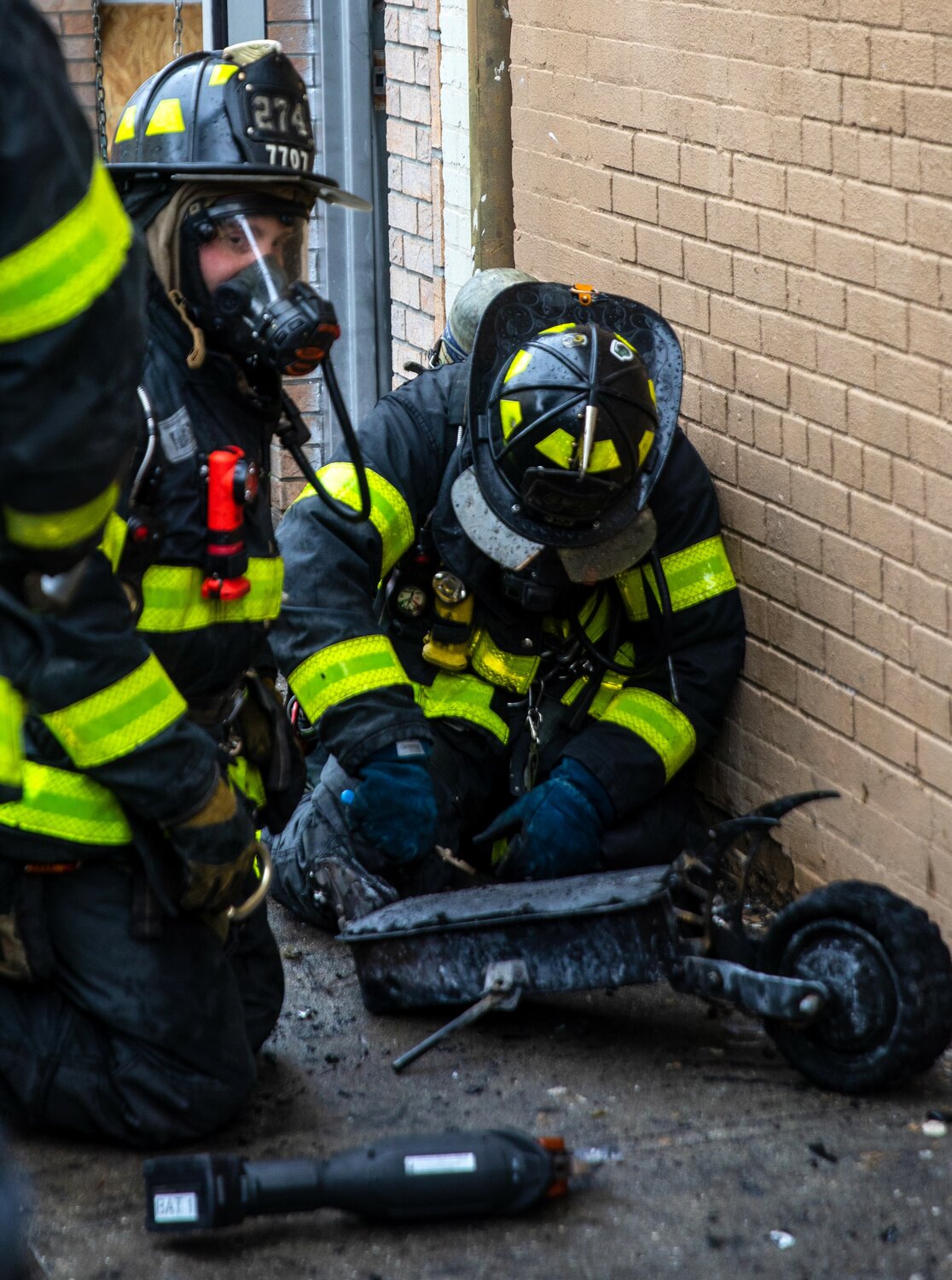Why should you be careful with lithium ion batteries?
There is an unfortunate reality with lithium ion batteries that can be dangerous. The batteries found in smart phones and e-bikes can, on rare occasion, cause a fire.
Lynbrook Fire Department Chief Danny Ambrosio recently warned neighbors throughout Nassau County that lithium ion batteries used in smart phones, laptops, cameras, e-bikes, scooters, and toys, and come in different sizes and shapes, can in rare cases cause a fire or explosion if not handled or used properly.
Lithium ion batteries are compact, lightweight batteries that hold considerable charge and fare well under constant discharge-recharge conditions.
But these batteries can be dangerous. Although accidents are rare, those that do occur may be spectacular resulting in an explosion or fire.
New York City firefighters have fought numerous building fires that were caused by Lithium batteries that caught fire or exploded. And people have died in fires caused by these batteries. In 2022, FDNY responded to more than 200 e-scooter and e-bike fires, which resulted in six fatalities. So far for this year batteries have been linked to 33 fires and 42 people injured and two deaths.
On Oct. 17, five people were injured, three critically, in a Brooklyn house fire started by an e-bike lithium battery.
Lynbrook firefighters fought a basement fire this past year that the Nassau County Fire Marshal investigated and ruled was started by a lithium drill battery that caught fire spreading the fire to a wall of the basement. Firefighters quickly extinguished the blaze.
And, also on Oct. 17 the Malverne Fire Department extinguished a hover board battery fire which required a response from the Fire Marshal’s Hazmat Unit.
According to the National Fire Protection Association Lithium-Ion batteries store a large amount of energy in a small amount of space. And, sometimes these batteries are not used in the right way or designed for a specific use can be dangerous. They can overheat, catch fire and explode.
According to the U.S. Consumer Product Safety Commission, more than 25,000 overheating or fire incidents have been reported over a five-year period and involving more than 400 types of lithium battery powered products.
Ambrosio cautioned residents to only purchase and use batteries that are listed by a certified testing laboratory and contain a UL label. He strongly warned against using cheap or knock-off copies and only use ones that are designed for a specific device or toy.
He also warns to never charge these batteries under a pillow, or on a bed, or on a couch, or any other location that could cause a fire.
A battery owner should stop using a battery if one smells an odor, the battery gets extremely hot, changes in shape, or is leaking or even making noise while charging. Even when a battery is no longer being charged, a damaged battery still contains energy and could still cause a fire or explode.
Fire caused by these batteries can also be very harmful to the firefighters that must put out the fires.
The Nassau County Fire Marshal has stated, “Lithium-Ion batteries are an emerging hazard to the fire service.”
The Fire Marshal’s Office, in a bulletin to all fire departments, has directed the Nassau fire service on a number of ways to protect their firefighters while they fight these types of fires.
Besides the batteries starting a fire they also release a toxic and explosive gases. A Lithium battery fire releases an either-based vapor that’s highly flammable. It is a skin, eye, and nasal irritant and carcinogenic and can be potentially fatal. The fire and those toxic gases will rapidly expand to fill the area where the batteries are stored. And, a battery fire could reach temperatures above 1,200 degrees Fahrenheit.
According to Ambrosio, firefighters are being warned while operating at a fire where lithium batteries are damaged by fire or heat that they remain wearing their breathing air facepieces due to the toxic fumes. All batteries should be located in the fire area before overhaul of the fire scene begins. Any batteries found should be placed in a container with water and immediately removed from the home or building.
Residents are asked not to discard these batteries into the trash but should be carefully disposed of. The Town of Hempstead accepts used and discarded rechargeable batteries, along with other hazardous materials from residential households in the town, as part of their STOP (Stop Throwing Out Pollutants) program.
“Please keep your family safe, and our firefighters safe, by being careful with the purchase, use, re-charging, and disposal of lithium ion batteries,” said Ambrosio.

 50.0°,
Overcast
50.0°,
Overcast 







